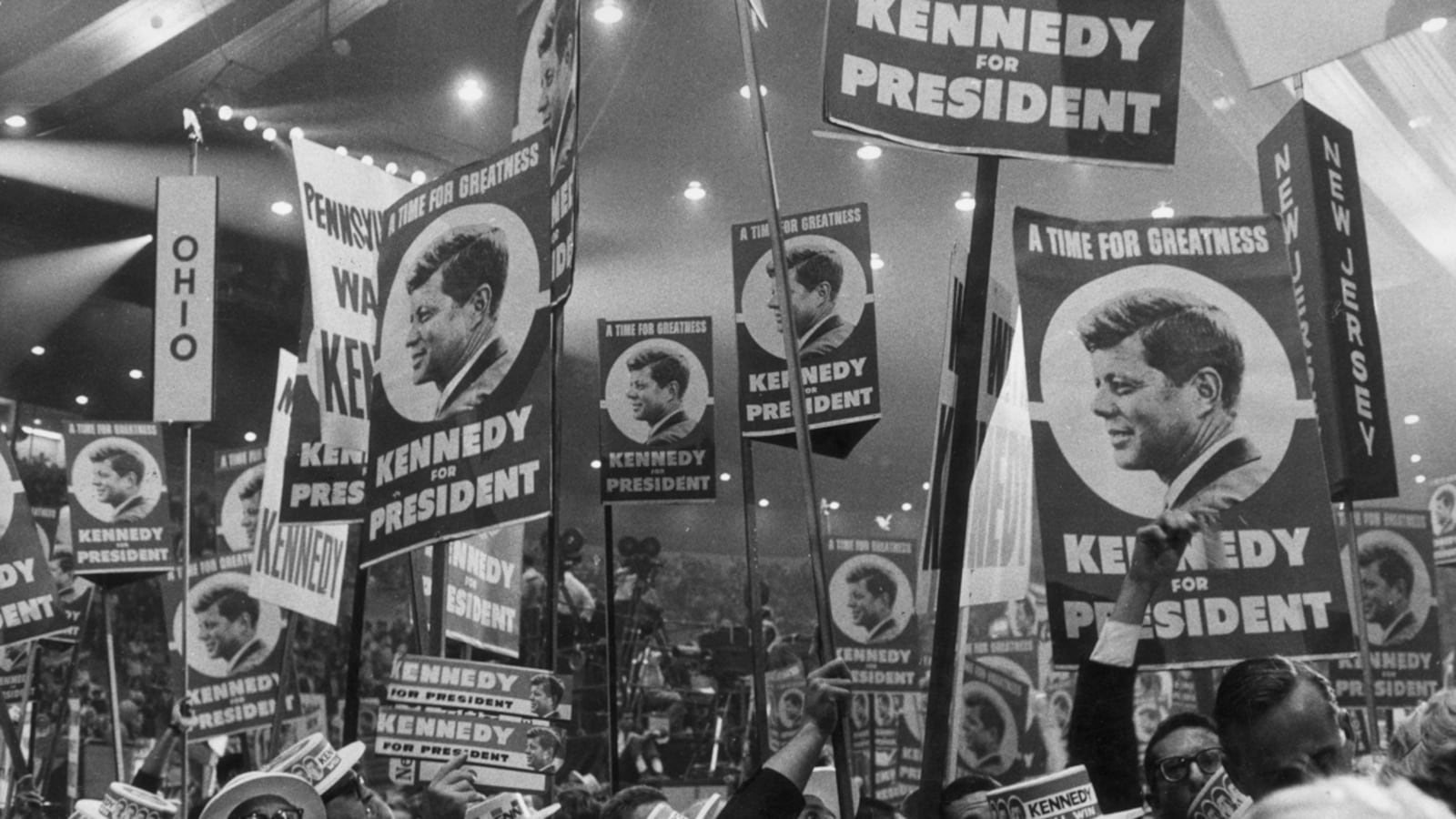A couple of years ago, I attended for the first time a British political party conference. I secured an invitation to the conference’s most exclusive private reception. The party leader and half his front bench mingled with the stars of British political media. I had a colloquy with the leader myself.

How glamorous was it? This glamorous: The party took place in a suite of conference rooms in a 1970s-vintage slab concrete hotel in Birmingham. Waiters circulated with plates of microwaved canapés: soggy little mushrooms, limp miniature hot dogs on toothpicks, greasy vegetable tempura. OK, granted, there was a lot of excellent champagne, proving once again that the British people can exist on virtually no food at all provided they get enough good booze. All in all, the evening’s total cost could not have exceeded 10,000 pounds.
The best party I ever attended at an American political convention took place in San Diego in 1996. Some corporate sponsor had rented the entire San Diego zoo. I don’t remember the food, although it was surely lavish, but I certainly remember the beguiling waitstaff who must have been sent over from some modeling agency.
The morning after the British party, business resumed in the Birmingham conference center: a full day of meetings, discussion, and debate. Delegates rose to their feet to tell party leaders what they thought of the election just passed. The leaders answered. Off-site, think tanks and nongovernmental organizations sponsored even more wide-ranging discussions on issues ranging from health-care service delivery to fighting crime.
At an American conference, nothing much happens until late afternoon. The days are given over to private meetings at coffee shops—and of course the most demanding task: nursing hangovers from the night before.
U.S. political conventions are big, expensive, corrupting wastes of time. But they could be saved and made useful again with one simple reform.
Conventions used to have a purpose: choose the party’s candidates for president and vice president. But the last convention at which there was any uncertainty at all was the Republican convention of 1976. The last convention where any decision making took place was the 1960 Democratic convention. The last convention to go beyond a single ballot: the Democratic convention of 1952.
Today, conventions ratify decisions made long ago and in other places. That makes for boring television, so the cameras go searching for other things to cover: gaffes, mistakes, disagreements. The politicians in control of the conventions respond to the gaffe hunt by imposing ever stricter control on every aspect of the show—making the show even more boring and pointless.
Increasingly, the real action moves off-site, to the lavish parties and receptions paid for by big corporate donors: cruises, cigar nights, martini mixers. Nobody pays for a thousand expensive cigars without expecting something in return—and checking whether he gets it.
It would be wrong to say no real work gets done at a convention. New political talent is surveyed, party activists network, fundraising begins for the next cycle. But what does not happen is open political work: policy discussion, platform debate, questions and answers between party supporters and party leaders. As the conventions have expanded into ever-grander extravaganzas, politics has retreated from view.
The public has a stake; taxpayers pay the security costs and contribute substantially to the events themselves: $136 million of public funds for the two parties in 2012. What they’re supporting is not much in the public interest.
Thus my proposed reform: split the conventions in two. In a presidential year, cut the proceedings to a one-day show—three hours of prime-time television for speeches by the presidential nominee, the vice-presidential nominee, and a keynoter, supported by public funds.
Then, the next year, the first year after a presidential election, let the parties run their own shows.
At such a distance from the next presidential vote, TV interest will be slight. C-Span will come, but otherwise, the proceedings will happen off-camera. Which means that the parties can relax their control and allow real discussion of real issues, as happens at party conferences in other democracies.
Absent the drama of a presidential event, big donors will cut back their entertaining, dispelling the smell of corruption that overhangs conventions today. We don’t have to swing all the way to British-style soggy mushrooms. But we could try harder to put the ancient American institution of the party convention to some useful modern purpose.






